Losing my son to suicide felt like my heart was ripped out
- Published
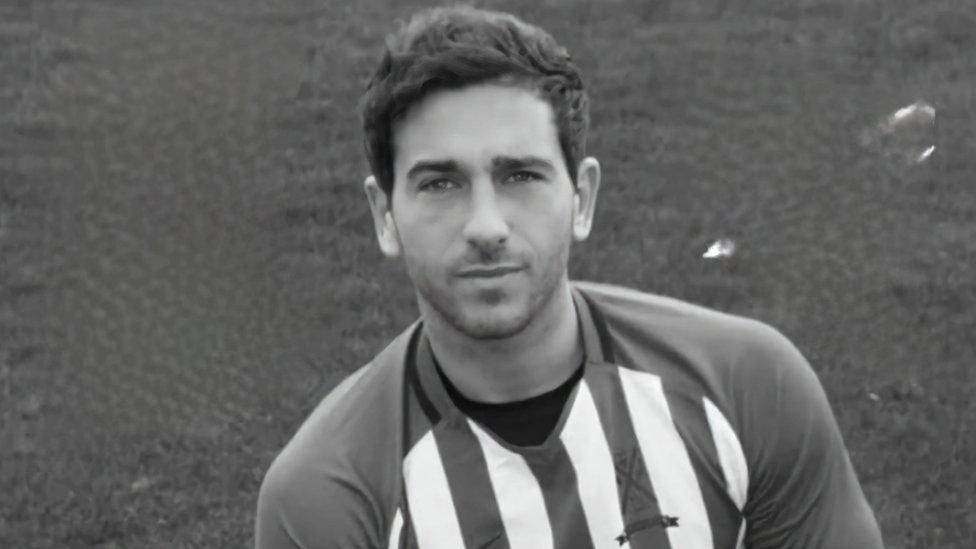
Ciaran Reilly was 29 when he took his own life
The last time Louise Russell saw her son Ciaran they had been happily singing Elvis songs in the garden.
When the police came to her door in December 2020, the last thing she expected was to hear news about her son.
"I just looked at them, then they asked: 'Are you Ciaran's mother?'
"I knew, and then I just screamed the house down and collapsed.
"It felt like someone had ripped my heart out through my chest," she said.
Ciaran Reilly was just 29. The father-of-three had taken his own life, leaving his family broken.
Covid had been especially tough for Ciaran. He had lost his job and was unable to do the daily activities he loved, like playing football and going to the gym.
But Louise, from Cupar in Fife, says that shortly before her son's death things had been "looking up".
He had just got a new job and was learning to drive - which was why when the police came to her door to tell her Ciaran had died, it was a total shock.
She said she wasn't offered any support from the police or other services and had to look for help herself.
Louise says his death has had a ripple effect on the family.
Less than a year later her daughter Siobhan died from an illness connected to alcoholism. Her other three adult children have also found it difficult to cope.
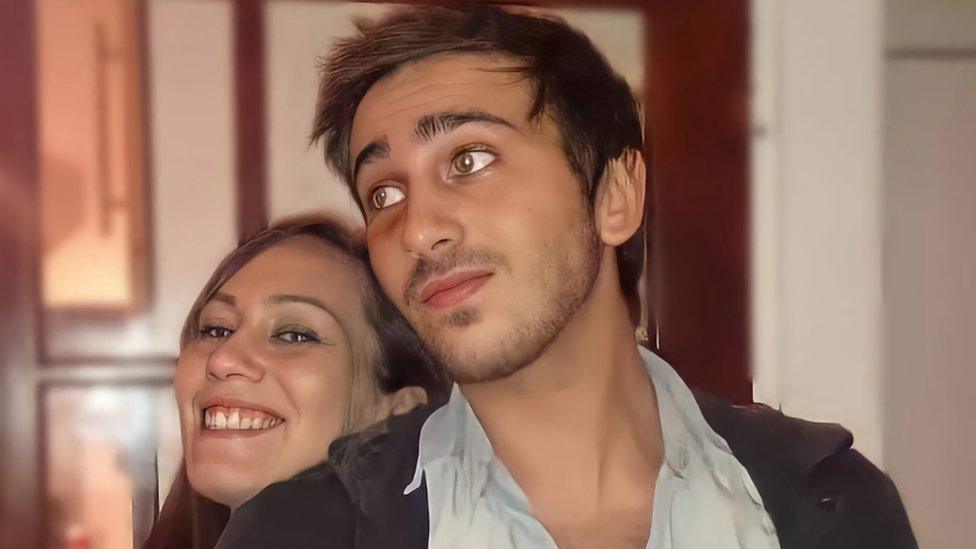
Ciaran Reilly with his sister Siobhan, who died in 2021
"You throw a stone in a lake and there is a ripple effect that just keeps going out the way," she says.
"It is difficult to check the rest of the children are OK because it affects them really badly. They miss Ciaran so much that some days they don't know what to do…
"It is like skittles. It knocks everyone over and just trying to pick up the pieces and keep going I think is the hardest part.
"Everything is before and after. Before, when he was here, and after, when he wasn't."
She and her partner David Christopher have since been trying to raise awareness of mental health problems and suicide prevention. They have just walked the North Coast 500 route to raise money for charities, including Change Mental Health and the suicide prevention charity Papyrus.
They completed the 500 miles - despite some terrible weather and both of them contracting Covid during the trip. They carried all their own gear and camped every night and say people along the way cooked and baked and opened their homes to them.
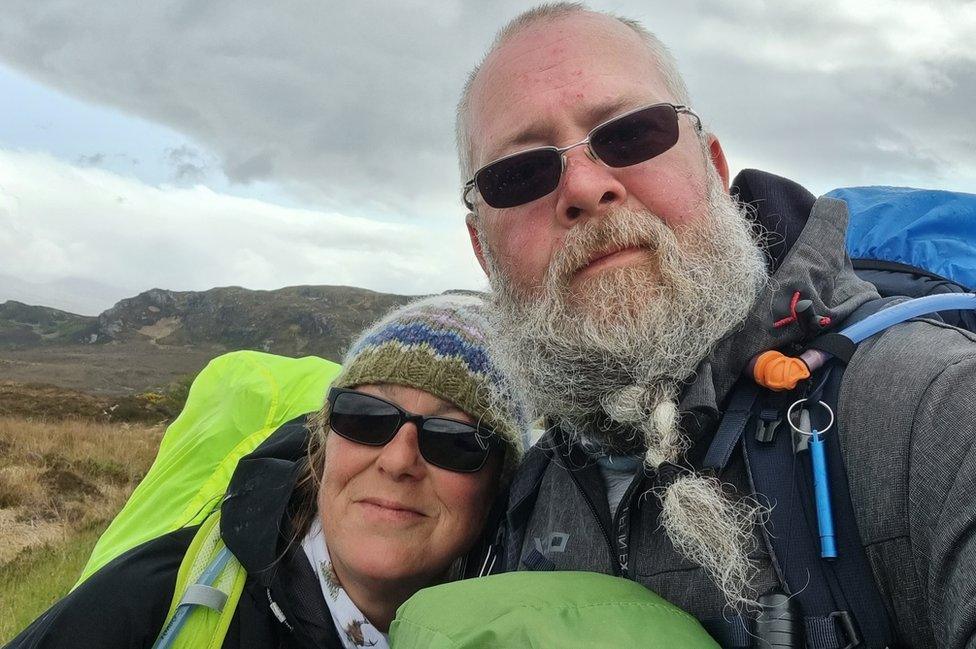
Louise Russell and her partner David Christopher walked the North Coast 500 route
David says they did the walk and are speaking out now to raise awareness.
"We were hoping to help other people," he told BBC Scotland News.
"You don't ever realise suicide can affect your family, that it can happen to your children, cousins, friends, anyone - so we're just trying to get the word out there."
The couple also want more information and support in schools and workplaces for those who are in distress.
"People need to know there is somewhere out there to get help," said Louise.
"I want to make the point the world is not a better place without them in it. It is not."
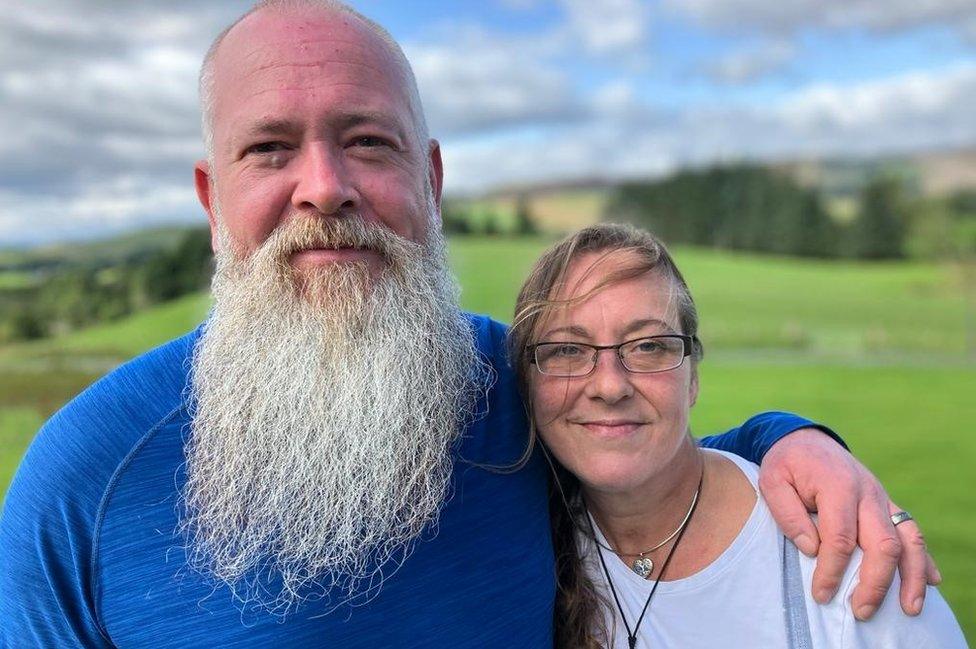
She said there should be more help available when people are looking for support.
"I did phone up at one point… I was told I would have to wait three days for a call back.
"The waiting time is too long and the waiting list for mental health for people to see people is horrendous.
"You're not getting help for a few months. That is just not acceptable."

The latest figures from National Records of Scotland, external show that 762 people died from suicide last year, a small rise on the previous 12 months.
The rate of suicide in males was almost three times as high as the rate for females.
The rate of death by suicide in Scotland fell by 20% between the periods from 2002-2006 and 2013-2017, but is still higher than in England and Wales. In 2021 the rate was 14.2 per 100,000 people in Scotland, compared to 10.7 in England and Wales.
In the past decade more than 7,500 people in Scotland have died from suicide.
Scotland's most recent suicide prevention strategy began a year ago. One of the aims is that anyone who asks should be able to get help within 24 hours, and should get 14 days of support through Distress Brief Intervention, external.
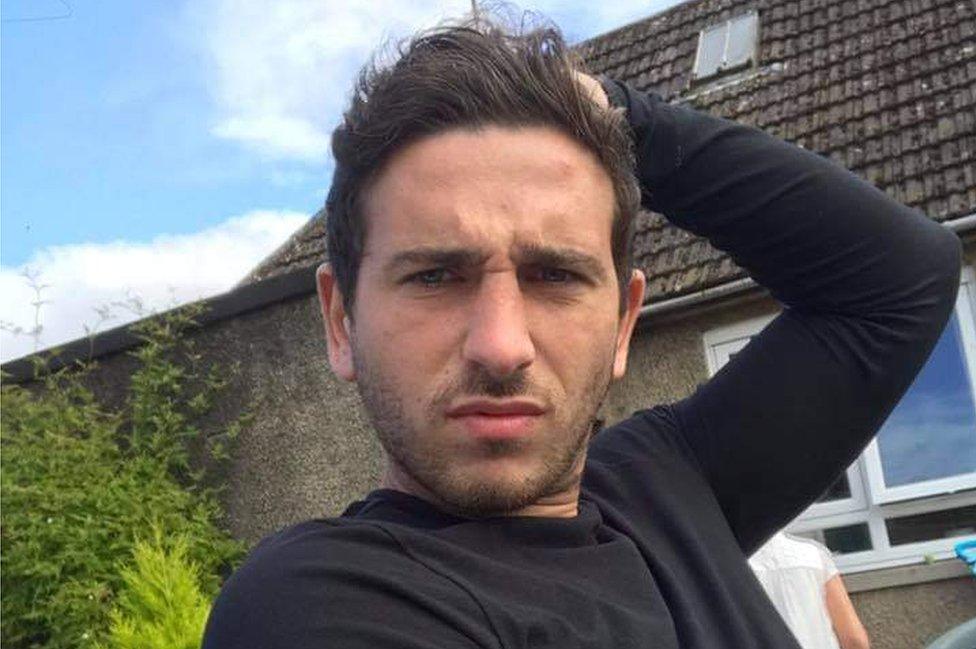
Ciaran's death had a ripple effect on his family
Prof Rory O'Connor is an adviser to the Scottish government on suicide prevention.
"We need to look at all the different factors we know that lead to people feeling defeated, humiliated and trapped," he says.
"For one person that might be trauma and unemployment, for another it might be feeling trapped by the pain of mental illness."
Analysis published last week shows people from the most disadvantaged backgrounds are three times more likely to die from suicide, external in Scotland.
Prof O'Connor says the key focus needs to be on tackling the inequalities that cause suicides.
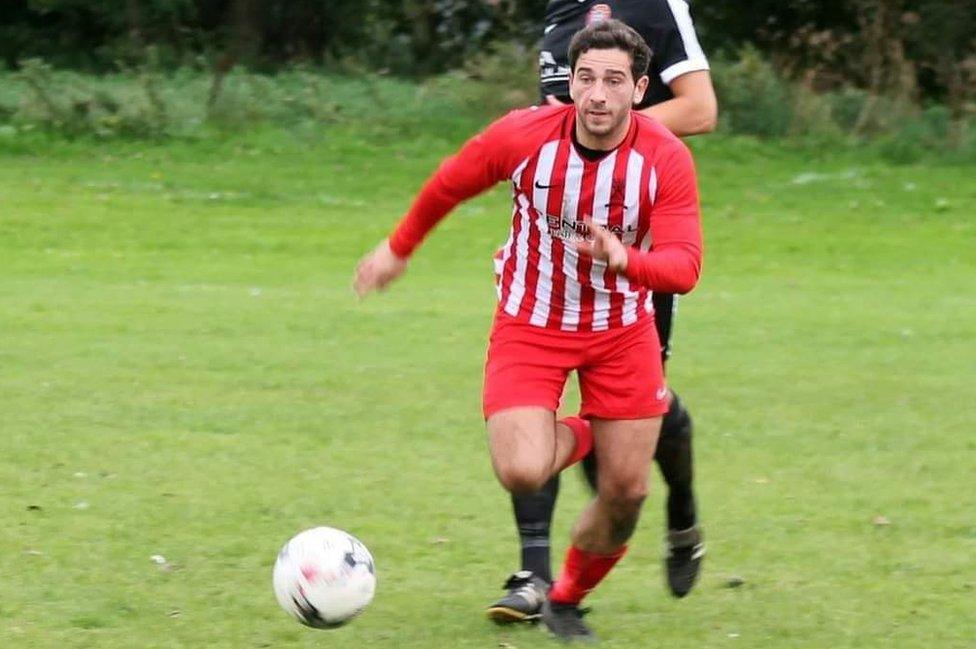
Ciaran Reilly was a keen footballer
"One of the challenges in suicide prevention is we have been too silo-ised. We have tackled mental health on one side and other aspects of health and wellbeing on another.
"Every government department has a role to play. We need to look at alcohol deaths, drug deaths and suicides in an integrated way - and we need to look at the role of education, social care, poverty and inequalities more widely."
He said the suicide rate in Scotland had been higher than England for decades.
"To understand this historically we need to look at the decline in traditional industries," he said.
"It has taken a long time to tackle these inequalities. And in some areas of Scotland we still have higher levels of deprivation. It is also linked to our relationship with alcohol.
"At the heart of this we need to tackle social inequalities in Scotland but that is going to take a whole generation to shift."
Mental Wellbeing Minister Maree Todd said every suicide was a tragedy with a far-reaching impact.
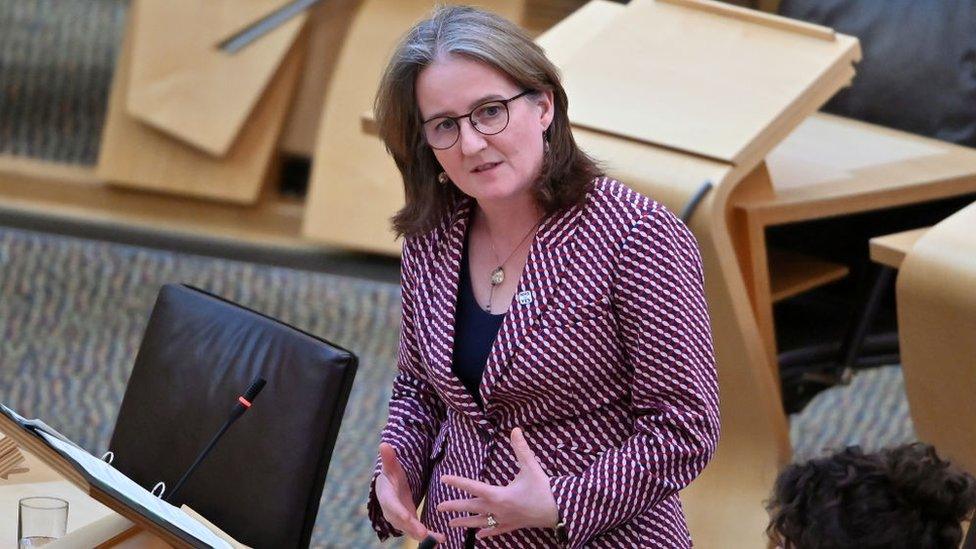
Mental Wellbeing Minister Maree Todd said the government wanted everyone to get the support they need
"Our aim is for any child, young person or adult who has thoughts of taking their own life, or are affected by suicide, to get the help they need and feel a sense of hope," she said.
"The Scottish government is working with all key national and local partners to ensure that people with urgent mental health care needs get the right help, in the right place, at the right time.
"Our joint suicide prevention strategy with Cosla, Creating Hope Together, sets out our plan to reduce the number of suicides whilst also tackling the inequalities which contribute to suicide."
She said one of the key priorities was to create more high-quality peer support groups for people affected by suicide to support their recovery.
Ms Todd added that the Scottish government was working closely with partners to roll out suicide bereavement support for families bereaved by suicide.
Police Scotland said it always tried to provide appropriate care and support following the death of a loved one.
"Our thoughts remain with Ciaran's family," said Ch Insp Christopher Dow.
"If they are unhappy about the way his case was handled, we would encourage them contact us to discuss the matter."
If you, or someone you know, is feeling emotionally distressed, BBC Action Line has put together a list of organisations which can help.